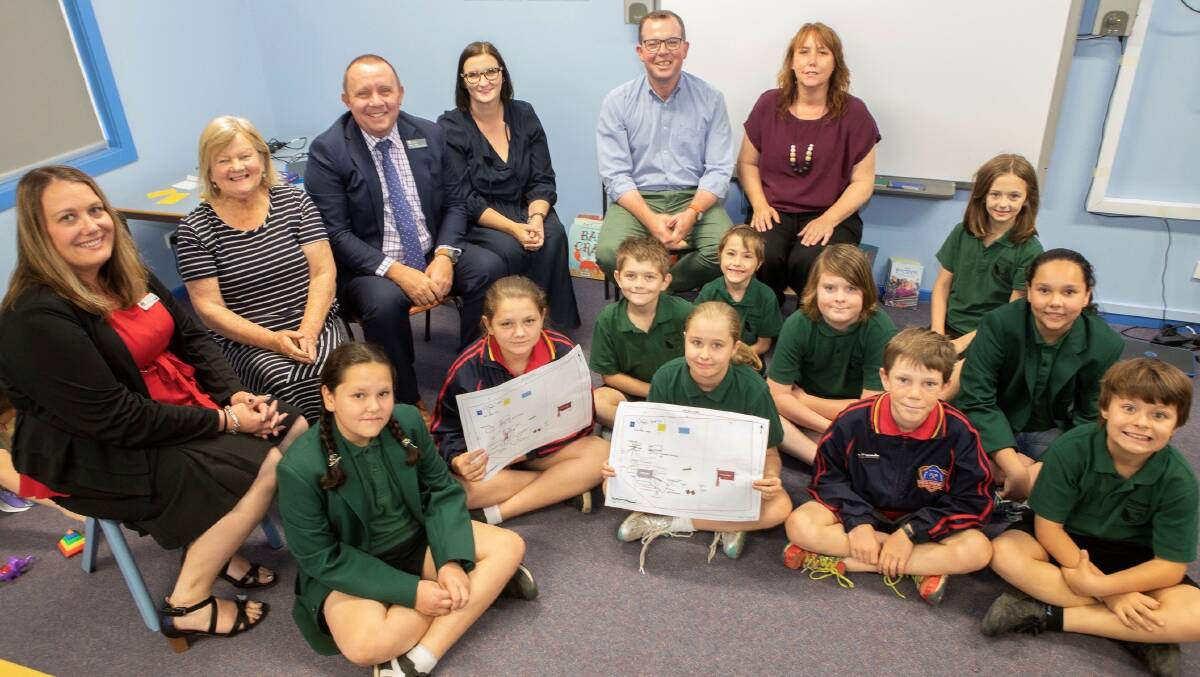
The Wytaliba community is starting to rebuild after the devastating firestorm that killed two residents and destroyed many of the buildings three weeks ago.
Subscribe now for unlimited access.
$0/
(min cost $0)
or signup to continue reading
Glen Innes Severn Council mayor and long-term Wytaliba resident Carol Sparks visited Wytaliba and nearby Torrington, also hit by the blaze, this week.
"People are in shock, and they're still working out what to do with their lives," she said.
Wytaliba Public School will, however, be rebuilt in time for the start of first term in January, Minister for Education Sarah Mitchell and Northern Tablelands MP Adam Marshall announced when they met the mayor and school principals on Wednesday.
READ ALSO:
- Planning for 2040: Armidale Regional Council seeks community input from the region
- HealthWISE will help Glen Innes's most vulnerable people from its new office
- Christmas comes to Glen Innes a month early
- Recycled water to be used on New England Highway roadworks north of Glen Innes
- Poor quality feed puts stock at risk, Northern Tablelands LLS vet warns
Over the Christmas break, builders will clear away the debris and construct a new school with a bigger playground, covered outdoor learning area, teachers' space, and library.
"Wytaliba Public School was a real focal point of the community," Mr Marshall said. "Its destruction has been greatly felt by students and parents alike [but] this new, modern facility will ensure local children receive the best possible education in an even better school."
Thirteen Wytaliba students are attending Red Range Public School, while other families have children at Glen Innes Public School.
"Many of these brave kids had to be evacuated as the fire emergency swept through their community, and are now living with their families in motels," he said.
Specialist counselling has been made available to the school community. Mr Marshall promised to keep working with relieving Wytaliba principal Kelly Murphy, and thanked Red Range principal Nicky Hutton for welcoming the Wytaliba students.
The state and federal governments have also provided recovery grants to fire-affected farmers and businesses, and $1 million for BlazeAid to repair farm fences.
The public have donated basic amenities to food, clothing, and household goods. Some even offered places for people to stay, or donated caravans.
Wytaliba residents have enough goods to keep them going for a while, Cr Sparks said, while the Torrington hall is full of clothes, goods, and foods.
"So many clothes and all sorts of things are coming in, it's overwhelming," she said.
Council may make the old RFS building a donations centre for fire-affected residents to help themselves.
Cr Sparks was also moved to receive a card full of good wishes from Glen Innes's namesake suburb in Auckland, New Zealand.
Now, community members feel, money is needed to rebuild the villages. Donations can be made through the RFS for the Wytaliba brigade; the Regional Australia Bank for the Wytaliba community; and the Glen Innes and District Community Centre, for general disaster relief. Donations can also be made to the Salvation Army, the CWA, and the Red Cross.
An art auction will be held next month to raise money for the Wytaliba Bushfire Relief Fund.
A GoFundMe crowdfunding account also aims to raise $50,000, and has raised nearly $62,000 so far.
Cr Sparks also said council and government were discussing waiving rates for drought and fire victims.


